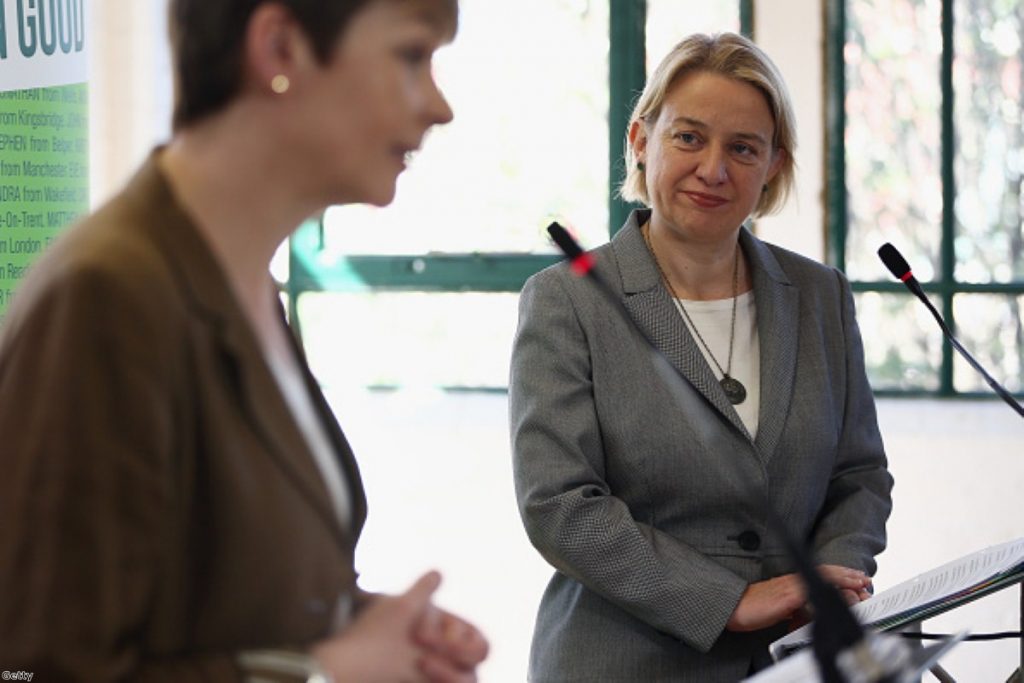Green manifesto: A mixture of the good, the well intentioned and the illiberal
The policies contained within the Green party's manifesto are a mixture of the good, the well-intentioned, the woolly and the illiberal.
First the popular bits. Among many other things, the Greens promise to scrap tuition fees, cancel all student debt, end all foreign wars, end NHS privatisation, nationalise rail, build 500,000 council houses, control rents, increase pensions and reverse public sector cuts.
They also promise to do some fairly liberal and sensible things on immigration and the criminal justice system, with pledges to dramatically reduce the prison population, relax migration and refugee restrictions, and decriminalise drug use.
But there are also some rather illiberal and paternalistic policies in there. Among other things the Greens would look at restricting horse and dog racing, impose "a complete ban on cages for hens and rabbits" in farms, a ban on all circus animals and all hunting for sport. This attraction to banning extends to culture, with a pledge to prevent the sale of all lads mags and pornography in shops.


There also remains a worrying anti-science strain to their politics. Under the Greens all GM crops would be banned as would any cloning of farm animals. "Just because science allows us to do something, that does not mean we should do it," they explain.
Overall though, the document feels much more mainstream and thought-through than their previous efforts, with most of their more controversial policies left out. There is also an attempt to fully cost their proposals, in a way that is absent from either the Labour or Conservative manifestos. No doubt these costings will be picked apart in the next few weeks, but at least there is an attempt to show that their pledges can be paid for.
Their manifesto launch was also far more professional than previous outings.
The horror-show of the party's campaign launch earlier this year – which began with their leader Natalie Bennett having a meltdown on live radio and ended with Green peer Jenny Jones tying to ban Bennett from answering difficult questions – was not repeated.
Jones was nowhere to be seen at today's launch. I asked one party figure where she was. "She's not being punished," they insisted. Which is a relief.
There was also no repeat of Natalie Bennett's now famous "brain freeze". Bennett was much better briefed today, fielding questions on possible coalitions and the finer details of policy costings with ease.
However, there was one rather important thing missing from the launch, which was the manifesto itself. An executive summary was provided to journalists, but full print copies were witheld for "environmental reasons" so I was forced to read the online PDF in tiny print on my phone once the press conference was all over. Only the Greens could launch a manifesto launch without providing an actual manifesto to read.
Also absent from today was anysense that this is a party about to break into the mainstream. Bennett spoke today about the so called "Green surge". Yet support for the party has dipped significantly from a high in January of 11% to an average of just five per cent now. Bennett also failed to shine in the recent televised debate, with polls suggesting she came in either last place or second to last.
The Tories had hoped that Bennett's appearance in the debate would boost the Greens at the expense of Labour. That hope doesn't appear to have been realised and they are on course for a respectable but hardly revolutionary result next month.
The Greens are definitely on the up and the recent rise in membership gives them a good grounding for future elections. But any suggestion that 2015 would be their big moment looks likely to be dashed.
The Green party are clearly heading in the right direction, but they've still got a long way to go until they become a major electoral force in British politics.









